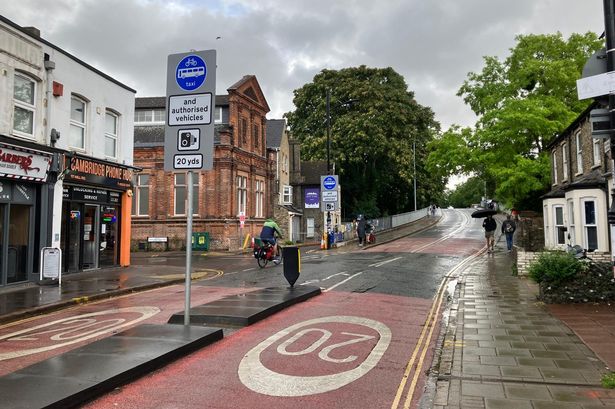Health
Cambridgeshire Council Spends Over £31,800 Defending Bus Gate

Cambridgeshire County Council incurred over £31,800 in legal fees to defend its decision to implement a bus gate on Mill Road bridge. This marks the second legal challenge against the council’s restrictions, which aim to limit motor vehicle access while allowing passage for buses, taxis, and emergency services. The court dismissed the challenge from the group known as Friends of Mill Road Bridge 2 last month, allowing the bus gate to remain in place.
In 2022, the council issued a Traffic Regulation Order (TRO) to establish restrictions on the bridge. This TRO followed the quashing of a previous order due to a legal dispute. The current restrictions close the bridge to all motor vehicles, with exceptions for local buses, taxis, emergency services, and vehicles registered under specific conditions, including those holding blue badges. Pedestrians and cyclists retain access.
The expenses related to the second legal challenge were revealed through a Freedom of Information request submitted by CambridgeshireLive, which reported the total cost as £38,817.10. The council is currently seeking to recover £10,000 of these costs. A spokesperson for the council stated, “As a local authority, we aim to protect taxpayers’ money and will therefore endeavour to recoup the costs that the council has incurred in defending this claim.”
In a previous dispute regarding the bus gate, the council spent £72,178.11 on legal fees to defend itself against the first challenge, which resulted in the initial TRO being quashed. Additionally, reports indicate that over 4,600 fines were issued to motorists violating the bus gate restrictions within a two-month period.
Public opinion on the bus gate remains divided. Some residents argue that keeping the bridge open to all traffic would have been more economical, while others support the restrictions citing increased traffic congestion in the area. Commenters on social media have expressed a range of views, with some advocating for greater access for independent businesses reliant on vehicle transport, while others emphasize the need for reduced traffic to improve the environment in the area.
As the council moves forward with its plans and seeks to recover legal costs, the ongoing debate highlights the challenges faced by local authorities in balancing accessibility with environmental and community concerns.
-

 Lifestyle2 weeks ago
Lifestyle2 weeks agoMilk Bank Urges Mothers to Donate for Premature Babies’ Health
-

 Lifestyle2 weeks ago
Lifestyle2 weeks agoShoppers Flock to Discounted Neck Pillow on Amazon for Travel Comfort
-

 Politics2 weeks ago
Politics2 weeks agoMuseums Body Critiques EHRC Proposals on Gender Facilities
-

 Business2 weeks ago
Business2 weeks agoTrump Visits Europe: Business, Politics, or Leisure?
-

 Politics2 weeks ago
Politics2 weeks agoCouple Shares Inspiring Love Story Defying Height Stereotypes
-

 Lifestyle2 weeks ago
Lifestyle2 weeks agoJapanese Teen Sorato Shimizu Breaks U18 100m Record in 10 Seconds
-

 World2 weeks ago
World2 weeks agoAnglian Water Raises Concerns Over Proposed AI Data Centre
-

 Sports3 weeks ago
Sports3 weeks agoBournemouth Dominates Everton with 3-0 Victory in Premier League Summer Series
-

 Lifestyle3 weeks ago
Lifestyle3 weeks agoShoppers Rave About Roman’s £42 Midi Dress, Calling It ‘Elegant’
-

 World3 weeks ago
World3 weeks agoWreckage of Missing Russian Passenger Plane Discovered in Flames
-

 World3 weeks ago
World3 weeks agoInquest Resumes for Jay Slater Following Teen’s Tragic Death
-

 Sports3 weeks ago
Sports3 weeks agoSeaham Red Star Begins New Chapter After Relegation Setback









